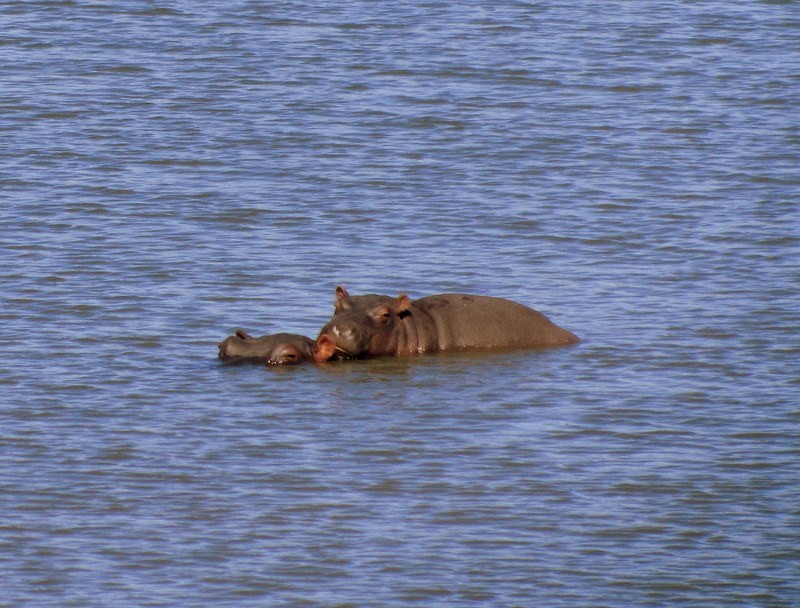This baby hippo needs all the protection it can get in its young life because it can provide a healthy meal for a hungry lion or croc. Even its father, or any one of the other males in its pod, can turn on it. Funnily enough, male hippos only seem to attack the babies in water, but leave them alone on land.
Hippo calves are born either in shallow water or on land, but either way they are taught how to swim very quickly. They can only hold their breath for about 30 seconds in the beginning, but soon develop ‘scuba lungs’ and can remain submerged for up to 6 minutes! Young’uns are often seen lying on their mother’s backs in order to stay afloat, but they have a skill for suckling under water. A hungry baby will take a breath, close its nose and ears, and secure its tongue around the teat.
Hippos stay cool in water and in muddy environments, and they produce a red secretion on their skin that is said to protect their hairless skin from the scorching African sun.
The mother hippo is a ferocious protector of her baby, and she is not one you want to get too close to. Here at nDzuti Safari Camp, where this baby and mom were spotted, guests can opt for walking safaris, but guides are careful to avoid hippo paths for the very reason that these plump mammals have a nasty temper. Hippos leave clear signs of their presence around and near their local waterholes. Narrow paths leading to and from the water are carved out in the tall grass, doused in dung, and are reused over and over again.
The hippopotamus is the 3 largest land mammal, after the elephant and the rhino, and its thick skin can weigh up to half a tonne. Despite its bulky form and its relation to the pig, hippos’ charging speeds can reach up to 10m per second, and one is advised not to get in the way!
Find more interesting facts about wildlife here, where local guide Mike Lentz explains why pearl-spotted owlets have ‘false eyes’, and comes across a relaxed African wild cat hunting for rats and mice!

